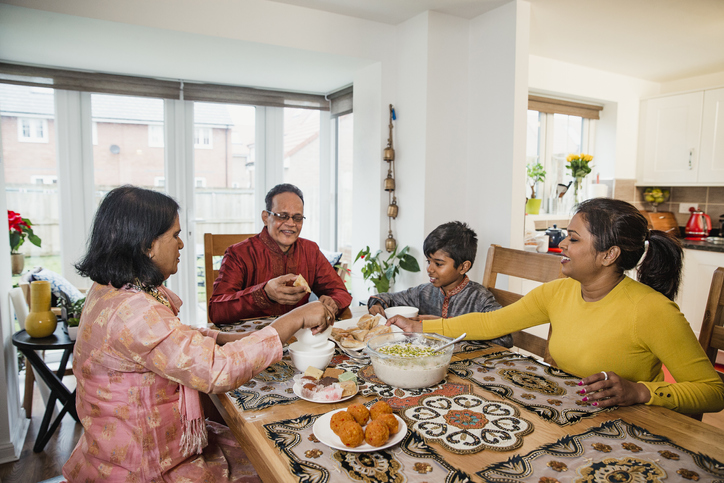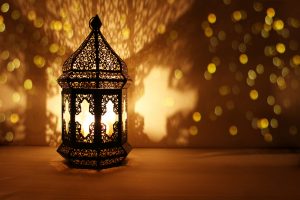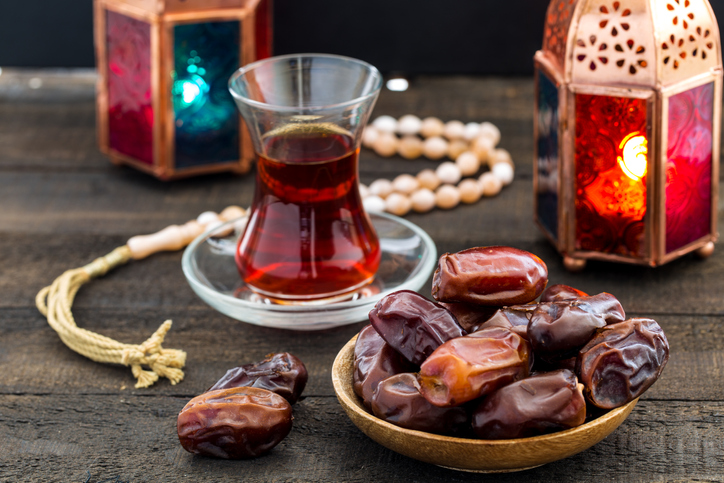Ramadan and Eid Festival Explained: Information for Carers
Ramadan is observed by Muslims worldwide and is regarded as a blessed month, which is observed on the ninth month of the Islamic calendar. There are five basic rules in Islam which all Muslims must follow. These are known as The Five Pillars of Islam. Ramadan symbolises one of the Five Pillars and is referred to as ‘Sawm’, meaning the “Fasting during the month of Ramadan”.

At the beginning of the fasting month, Muslims will greet each other with ‘Ramadan Kareem’ or ‘Ramadan Mubarak’ as a celebratory term. The fasting month lasts for 29-30 days each year however this is not set as fixed date, such as Christmas celebrated on the 25th of December yearly. In order to observe Ramadan at the correct time, Muslims seek advice from their local Mosque who confirm the start and end date of the fasting period which is at dawn and sunset.
Who participates in fasting and why?
It is compulsory for Muslims to start fasting when they reach puberty, as long as they are healthy. Many children complete fasts to practice for later life. There are some exemptions for fasting which may include;
- Travelling long distances
- Menstruation for women
- Severe illness
- Pregnancy and breast feeding
Advice can to taken from the local Mosque to discuss individual needs if you are unsure about your circumstances. A person who is fasting is expected to refrain from consuming all foods, liquids and abstain from smoking and sexual activity from dawn until sunset.
Ramadan is set aside as a time for reflection and increased worship. Many Muslims will visit their local Mosque more frequently, perform regular prayers, read The Quran (Holy Book) and give to charity and/or volunteer for a good cause. Ramadan is regarded as a blessed month. It helps Muslims to develop self-control, acknowledge God’s Blessings and encourages one to have greater compassion towards others, especially the deprived.

Fasting timetable
A typical routine for a person fasting includes awaking before Sunrise to eat a meal of their choice. This is known as ‘sahoor’ or ‘sehri’. The first prayer then commences after breakfast. Sunrise times differ depending on where you live in the UK and the month Ramadan falls on. This year Ramadan is in the month of May/June 2019, therefore Sunrise is at approximately 2am. Muslims tend to return back to sleep once they have prayed and eaten before sunrise, so to preserve their energy before they continue their daily routine of work / school / college etc.
Towards the end of the day a meal is prepared prior to sunset. Many friends and families arrange a gathering to break their fast together. Traditionally, once the time of sunset has arrived which is known as ‘iftar’, the first food item eaten is a date. This is also the time for the fourth prayer of the day. In total there are five prayers observed throughout the day. Many local Mosques can provide you with a timetable of sunset and sunrise times for the fasting period, which makes it easier for any person to follow. Generally, men are expected to attend the Mosque to observe these prayers. It is optional for women to attend and not all Mosques cater for female worshipers.
Eid Festival
Once the month of fasting is complete, Eid is celebrated. Eid is a religious festival which is held on the first day following the end of Ramadan. On this day, Muslims wear their best outfits, usually traditional clothing. Muslims visit their local Mosque to observe Eid prayer, after which they will greet each other with ‘Eid Mubarak’ meaning Happy Eid. Once home the family get together to have traditional sweets and breakfast. Throughout the day many will receive visitors of close friends and relatives, gifts and share food.

How to support a Muslim child/young person in foster care:
- Support a child/young person in identifying their local Mosque. It is the young person’s choice if they wish to attend the Mosque.
- Provide a Prayer Mat
- Provide a Quran
- Provide a Hijab (Head Scarf) for females and a Mosque Hat for males. A child/young person will choose if and when they want to wear this.
- There are multiple Islamic channels available via TV networks such as Sky or Virgin which a young person may choose to watch to support their faith, especially during Ramadan and Eid. For instance, British Muslim TV sky 845.
- Provide fresh dates for a child or young person to break their fast. This is a very symbolic.
- Provide a Halal diet – Halal meat can be easily obtained from most supermarkets, however can also be purchased at specific Halal butchers. Standard dairy produce can be consumed such as milk, cheese and eggs.
- Provide a meal of the child/young person’s choice once their fast is broken. This may consist of a cultural dish such bread, rice, chicken curry, kebab’s, samosas etc. This meal needs to be high in protein, carbs, fats and dairy so to ensure the young person is still receiving the recommended daily nutrients, to take them through the fasting period.
- Eid is a very significant time in the Islamic faith and is one of the most celebrated festivities of the year. This occasion must be marked by having sweet treats such as baklava, kheer (rice pudding) and halwa (a semolina pudding). However western sweets are also enjoyed such as cookies, cakes and chocolate treats.